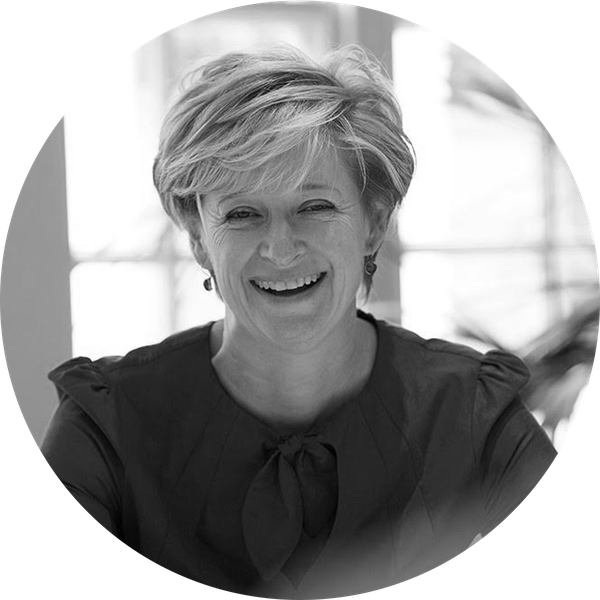
Meet The Career Coach With The Power To Transform Your Life

Let’s start by going through your own professional background…
It all started with some advice from a university friend who told me anyone who enjoyed shopping as much as I did should work in a shop. That’s how I ended up on the M&S graduate training scheme. By the end of it, I was running general staff training, and soon started freelancing to expand my experience and juggle work with a baby. I ended up helping on a cross-sector interchange group which specialised in management development called The Whitehall & Industry Group (WIG). In the end, WIG turned out to be the one that stuck, because it combined leadership development with business development and entrepreneurialism.
After six years and three more children, WIG gave me a coach to help me think about what to do next. The coach helped me see much more clearly what it was I had been doing and which bits I really enjoyed. It helped me understand what I wanted to do more of. So, I ended up at AT Kearney – the management consultancy – first in the search business, where I ran the London office, then the global human capital practice. It was both stretching and exciting.
What led you to set up your own coaching business?
At Kearney, the combination of a new boss and a crazy schedule persuaded me there was more to life and I left to set up Maxxim Consulting with the woman who had the same role as me at Accenture. Maxxim thrived through three recessions and one boom; we focused on CEOs, CFOs and COOs, helping them deliver on their strategy. It was a privilege to operate at that level and our USP was knowing what was worth doing and getting it done.
After 15 years, we called it a day, partly because one of my children had been very unwell, but also because we both needed a change. I merged the business with Q5, an equally successful change management business and became the chair. I’ve since flown that nest too, and trained as an executive coach, so today I’m much more focused on pure leadership strategy, development and coaching.
Tell us a bit more about the different companies & people you’ve worked with over the years…
I’ve worked for businesses at every stage of their development, both as an employee or founder, and with them as my clients. At M&S, I was part of the connective tissue linking commercial strategy to the people on our sales floors. At WIG we were a tiny team with incredibly supportive stakeholders and at Kearney I was part of a global leadership team. In my consulting life I’ve worked with start-ups through to big organisations – both of which have wanted to re-discover their mojo. This has included global engineering firms, banks, insurers and services businesses.
Predominantly, I tend to work for the group centre at the start of the project, before working specifically with the various divisional heads. I’ve also led enterprise-wide transformation projects, including a major privatisation. In the end, all these businesses had was their products and services, its processes and its people. If those elements fell out of sync, and the managers lost sight of the customer, they all needed to take a good look at themselves and make the appropriate changes.
Specifically, what is it you offer your clients at CA Partners Consulting?
At CA, we aim to bring purpose to the work done by leaders across organisations. This involves leadership strategy and development, designing and running programmes of work for groups and individuals, and supporting leaders and their teams through various transformations.
A lot of this involves one-on-one coaching and working in small groups. In a nutshell, our ambition is for people to get to know themselves better, connect with their teams and get the work done. We also want them to be able to do this while being fully aware of the impact that work has on the communities or contexts in which they operate.
How many sessions does someone usually need?
The minimum number of coaching sessions is usually six, but most people do ten. A lot of people like to have check-in sessions, too. It’s a bit like going to the gym – you know what to do to keep fit, but it helps to go to a class or check in with a PT. My other analogy is dental floss – you know it’s good for you, but the novelty wears off after a few weeks! Being consistent with it allows you to get under your own skin and remember who you really are. You can then apply some of that knowledge to any current challenges you might be facing and think through what it will take to be at your best.
And what are some of the common problems people come to you with?
I always say “problems” are examples we need to work on and learn our way through. That might sound a bit pompous, but the most exciting work happens when a client deconstructs what it is they’re dealing with and breaks it down into things they can actually influence – i.e. things they can fix and other things they just can’t worry about.
Some good examples include company culture; whether the organisation is trying the same tactics but they aren’t working; poor team dynamics and personal relationships within and between teams; feeling misunderstood; what to do in the next stage of your career; and how to be a better leader.
What are some of their most common learnings?
Most people leave with a much better understanding of who they are, what their natural predisposition is, and how to listen to themselves and other people with intention. A large part of our work focuses on reframing the approach you take to challenges, and how to be more positive, while also finding the confidence to say what you really think or feel without upsetting people. Ultimately, we want clients to be more comfortable and confident and figure out what they really want.
Would you say there’s a ‘typical’ client you see?
Usually, my clients are competent people in the middle of their career, who have got to a place of relative seniority and want to navigate to the next step. For some, this comes down to answering what it is they want to do; for others it’s about knowing how to get what they want. Some just want to find the confidence to be able to achieve what they know they already want. I also see people who are facing a specific or difficult challenge – like a CEO who might be leading a merger, a re-organisation, or is just facing a tough time in business.
Is it expensive to use a career coach?
‘Expensive’ is a relative term for different people, but I operate a Robin Hood fees arrangement with a sliding scale. Therefore, what we charge really depends on the wealth of the organisation, and the contract they want to set up with us. This, of course, would be different if individuals were to approach us independent of the company they currently work with. It’s always worth making an enquiry and seeing if it’s something you want to invest in.
What kind of expectations should people have going into this?
The most important thing to realise is that this is your work. There is thinking and reflecting to do both in the sessions – which are typically an hour – and in between them. It can be tiring and blocking out some time before and after the session makes the world of difference to the value you might get from it. People also need to understand they can’t change who they are, but it is possible to learn, try new approaches and observe the results.
Finally, do you have any general advice you could share now?
Anyone who’s feeling a bit stuck in their career should ask some genuine questions, both of themselves and others – trust me when I say it’ll get you a long way to start off with. Also, if you try to take a more confident and relaxed approach at work, you’ll be more fun to be with at home and with your friends and family. Once they’ve done the work, clients often tell me they feel far less tired and downtrodden by their job – they’re much happier, and that’s good for everyone.
For more information or to enquire about Claire’s services, email claire@capartnersconsulting.com.
DISCLAIMER: We endeavour to always credit the correct original source of every image we use. If you think a credit may be incorrect, please contact us at info@sheerluxe.com.

